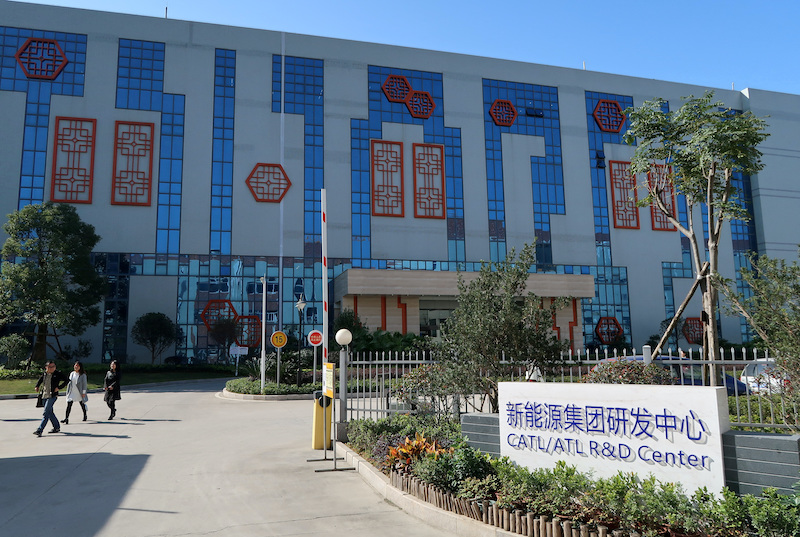China battery giant CATL has halted its investment plans for battery plants in Mexico and the US due to concerns over costly source materials, two close sources said.
Plans have been on hold since late August, after the US put in new restrictions on sourcing electric vehicle (EV) battery materials, the sources said speaking on the condition they could not be named.
The planned investment in northern Mexico, South Carolina or Kentucky would be part of an expansion for CATL beyond China, where it controls almost half of the battery market, serving major automakers including Ford and BMW.
Also on AF: Yuan Sinks to Lowest Since 2008 Despite State Banks’ Support
CATL sees North America as a crucial market, the two people with knowledge of its planning said.
The new rules, though, would hike the costs of manufacturing batteries in the United States to a level higher than the cost of shipping them from China, even if the US government offers subsidies for CATL to build the plants, said a third person, who also asked not to be identified.
It was not immediately clear how much of a delay CATL was considering in any North American expansion or whether it could make other adjustments to its approach to narrow the cost gap.
The company also did not immediately respond to a request for comment.
The battery plant news came on the same day it emerged CATL’s third-quarter profit nearly tripled year-on-year, buoyed by a rapid expansion in production to power the growth of EVs worldwide.
CATL booked a net profit of 9.4 billion yuan ($1.30 billion) in the three months to end-September, according to a company filing to the Shenzhen stock exchange.
Revenue increased 232.5% in the three-month period to 97.4 billion yuan from a year before, the company said.
BMW South Carolina Battery Plant
On Wednesday, BMW announced a $1.7 billion investment to build EVs and high-voltage batteries in South Carolina.
Envision AESC, a Chinese renewable energy group that acquired a Nissan Motor Co Ltd battery supplier already operating in the United States, will build a new battery plant in South Carolina to supply BMW, the companies said.
“We are not unduly concerned,” Envision said in a statement when asked about the company’s view of the battery sourcing requirements.
Hyundai Motor Co is set to break ground next week on a $5.5 billion EV plant in Georgia and wants US legislators to relax restrictions on foreign investment.
Under the $430 billion law, rules governing the current $7,500 EV tax credit aimed at persuading consumers to buy the vehicles will be replaced by incentives designed to bring more battery and EV manufacturing into the United States.
Executives from Volkswagen, BMW, and Hyundai have urged US legislators to give automakers operating in the United States more time to meet the required battery sourcing targets to qualify for tax incentives.
Democratic Senator Joe Manchin, who was central to drafting the new law, has said it was intended to drive companies to mine and process materials for batteries in North America and break the industry’s reliance on China.
It requires automakers to have 50% of critical minerals used in EV batteries sourced from North America or US allies by 2024, rising to 80% by the end of 2026.
- Reuters, with additional editing from Alfie Habershon
Read more:
Australia’s Syrah Expands US Plant to Boost EV Production
Tesla Shares Dip Despite Record Revenue, Strong Shanghai Sales
BYD Shares Jump as Chinese EV Giant Flags Profit Surge
























